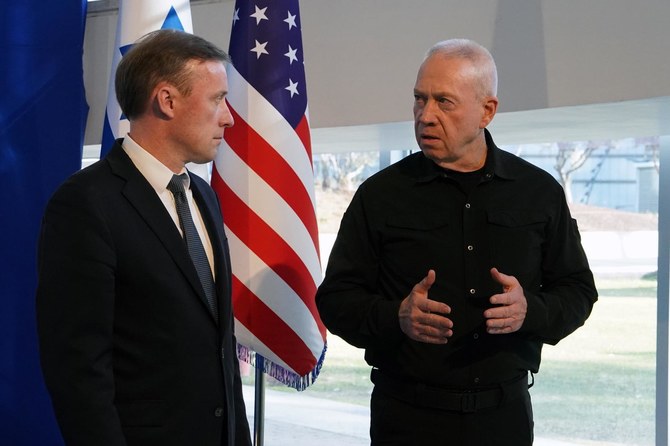
During some of the darkest days of his premiership almost three decades ago, John Major headed to Japan on an official visit, hoping to leave the turmoil inside the Conservative party behind him.
Arguments over Europe were raging at home. The Tory right was in open revolt. The economy was still reeling from aftershocks following the UK’s traumatic exit from the European exchange rate mechanism the year before, and the promised “green shoots” of economic recovery had yet to appear.
The British press pack that accompanied Major on that trip showed little interest in reporting the substance – dry discussions about trade between Major and his Japanese counterpart, prime minister Morihiro Hosokawa. At a joint press conference in Tokyo with his Japanese host, Major was instead pummelled with questions about the Tory civil war back at Westminster.
At one point, a British journalist asked the UK prime minister: “Do you agree with your chancellor, Kenneth Clarke, that your government is still in a dreadful hole, and if you do, how are you going to get out of it?” The large Japanese press corps looked on, mystified. “The point about the hole is that we are on our way out of it!” Major replied. But for him and his Downing Street team, there was no escape, even 5,700 miles away.
Thirty years on, Rishi Sunak’s trip to the G7 summit in Hiroshima over recent days has not been the embarrassment that Major’s visit proved to be in 1993.
UK diplomats were pleased that he managed to strike up a tech-friendly rapport with Japan and has been sure-footed diplomatically on Russia and the growing threat of China without going off-script, as Boris Johnson and Liz Truss were liable to do. The photo ops have, by and large, worked. Sunak joshed with France’s Emmanuel Macron about his boxing regime and even found time to try his hand at flipping Hiroshima’s traditional noodle pancakes, the okonomiyaki.
But, as with Major, Tory divisions and his party’s growing ill-discipline have stalked him in east Asia. Questions about soaring net migration, the cost of living crisis, the failures of Brexit and the party’s disastrous losses at the local elections have never been far away.
On the flight to Japan, Sunak was evidently irritated to be asked about the former Ukip leader Nigel Farage’s verdict that Brexit had failed – an admission he made in an interview last week. “I voted for Brexit, I believe in Brexit. As chancellor and prime minister, I am actually delivering the benefits of Brexit as opposed to talking about it,” Sunak snapped back.
The media, he suggested, should pay more attention to what he claimed was the reality, that households were enjoying rising disposable incomes. “That’s what’s actually happening with the economy, that’s what global CEOs, who actually have the money and are making investment decisions, are saying,” he said. Recognising he had been on something of a rant, Sunak added: “Glad to get that off my chest!”
Sunak likes to talk privately about how he models himself on US investor Warren Buffett, who does not worry about the daily profit and loss account but fixes his gaze on the long term. That is all very well, and is good for the blood pressure, but as he does so, the right of his party is increasingly restive, and discipline is breaking down.
After the loss of more than 1,000 council seats in the local elections – Sunak’s first electoral test as prime minister – many Tories now lack their leader’s outward calm and are making very public the fact that they fear for their, and their party’s futures. An increasing number ask where, after 13 years in power, the Tory party is going and what it has achieved. Some of the most ardent backers of Brexit increasingly blame their own government for failing to make it work.
As one former Tory cabinet minister put it: “They can’t admit it was all a big mistake in the first place. They always have to have something to blame. For some, their entire purpose in politics was to blame the EU for everything. Now that it is failing, they blame the government and seek new grievances.”
The identity crisis that has broken out in recent weeks is spawning new rightwing groups, with policies on everything from immigration to the family and tax. Some experienced hands see parallels with 1997, the disastrous end of the Major era, and the soul-searching period in the political wilderness for the Conservatives that followed.
Writing in today’s Observer, the former Tory cabinet minister Ed Vaizey says the kind of wrong-headed arguments that sprouted after the Tories’ crushing 1997 defeat by Tony Blair’s New Labour are now breaking out in advance of a general election.
“We have been here before. After our defeat in 1997, so many Conservatives blamed the outcome on our party not being Conservative enough. It was a long and hard struggle to get the party back to the mainstream, and to relearn the lesson that you only win in politics by looking forward, not back … Harking back to a golden age, with a wish-list of policies that are completely absurd in a modern, developed nation, is for the birds.”
To the dismay of many one nation, pro-European Tory moderates like Vaizey, and many to the right of them who would still regard themselves as centrists, it is the malcontents on the right who have been dominating the airwaves for days.
A series of conferences has championed different incarnations of the party, with former ministers and MPs railing variously against “experts and elites”, demanding the return of Boris Johnson and even calling for the falling birthrate to be made a top priority. The latest group to emerge is the New Conservatives, who are calling for taxes to be slashed, more traditional family values, and the reversal of cuts to the size of the armed forces.
The first trouble on Sunak’s right flank broke out in the seaside setting of Bournemouth last weekend when those furious at the party for abandoning Johnson and his Brexit project gathered for the first conference of the Conservative Democratic Organisation.
The group, bankrolled by Tory donor Peter Cruddas, is demanding more power for grassroots members and championing a strand of Conservatism that saw the increasingly discredited Brexit as its purpose. It included an appearance by former home secretary Priti Patel, who warned that Brexit promises were being “frittered away”.
The clearest expression of a party turning on itself came from Tory MP Andrea Jenkyns, who declared from the podium: “I look around colleagues and think: you belong in the Lib Dems, actually.”
While the Bournemouth gathering was a quintessentially British affair, seaside setting and all, the three-day National Conservatism conference which followed in London last week, organised by American public affairs institute the Edmund Burke Foundation, represented the arrival of a US-led socially conservative movement.
Tory MP Miriam Cates claimed that the UK’s low birthrate was a pressing issue caused by “cultural Marxism” stripping young people of hope. Fellow MP Danny Kruger told the conference that marriages between men and women were “the only possible basis for a safe and successful society”. Home Secretary Suella Braverman took to the stage to rail against the “radical left”.
One Tory MP noted that, three years ago, backbench MP Daniel Kawczynski had been reprimanded for attending a National Conservatism event in Rome alongside the likes of Hungarian prime minister Viktor Orbán. Now attempts to impose order had been abandoned. “Three years ago, someone got bollocked for going to one of these things,” said the MP. “Now we’re sending cabinet ministers along.”
On the left of the party there is division too – but in this case it is over whether to denounce colleagues on the right in the strongest terms, or just try to ignore them and hope they go away. “There is a very active and lively discussion in our ranks about whether we should come out and describe them all as fucking mad,” said one former cabinet minister.
Some one nation Tories fear that to do so would merely “feed the story about our party being at war” while others, such as former education secretary Nicky Morgan, believe it is time for the moderates to speak up, or else people will begin to view the Tories as a whole as an institution run by the likes of Braverman. “If we are to debate the future of the Conservatives, we need to hear from all Conservatives, including the One Nation group,” Morgan says.
Tory MPs across the party at least agree on one thing: that all this unruliness does not add up to an attempt to destabilise or remove Sunak. Even Jacob Rees-Mogg, a critic of Sunak who was close to Johnson, has said that removing another leader would be “ridiculous”. As one Johnson ally says: “Everyone’s aware that there’s no other option. Those of us on the right have to accept that after the Liz thing, arguing that we’re not rightwing enough isn’t going to work.”
To some, the very public debate on the right is, somewhat paradoxically, evidence of an uneasy truce that has descended on the Tory party – an acceptance that it is a loveless marriage of convenience between Sunak and many of those MPs, mainly on the right, who are seeking a new mission.
The bigger issue for the party is that, while the right is doing its soul-searching and blue-sky thinking, the support of a cohort of liberal, pro-remain Tory voters is now in serious jeopardy. In the so-called “blue wall”, the last week has been a disaster, according to election experts.
“Ronald Reagan once said that he didn’t leave the Democratic party, the Democratic party left him,” said Prof Robert Ford of the University of Manchester, author of The British General Election of 2019 and Brexitland. “He meant that the party had moved away from him and against his interests. Many blue-wall Conservatives now feel similarly about their party. These voters’ worldviews and preferences haven’t changed. But they find those views are no longer being represented.
“The Conservative party has not just ignored them but often seems to be going out of its way to underline that they are not welcome any more. Rishi Sunak does cut against this trend, it’s true, but he is one guy with a sharp suit, with the right background, making the right noises. But those around him look and sound very different. The National Conservatism conference really underlined that.”
Asked whether the party – now so divided and with so little to boast about after 13 years in power – could still win the next general, another ex-cabinet minister answered: “No, if I am honest. There are too many divisions and too many contradictions. We have a leader who is trying to be fiscally responsible but with many of our MPs going on about nothing but cutting taxes. We say we want to control immigration yet want more skilled immigrants.
“After 13 years, with Brexit having proved a failure, it feels like we are going to have to sit things out for a bit and regroup.”












